Thank you all for your help in busting this myth! Based on member responses – and well, looking around our office, neighbourhood, friends, and family – it’s easy to say with a resounding “yes” that it is possible to live car-free in Winnipeg.
How do they do it?
From the reponses, a few key themes emerged that enable these Winnipeggers to live without owning a car:
Being able to make the choice
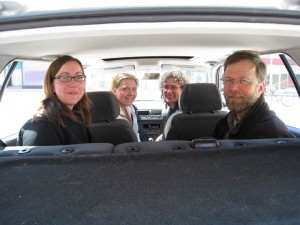
It is important to note that for some, a car-free lifestyle does not feel possible.Family life is particularly challenging if you have children that need to be transported to and from extracurricular activities. This is where some have found carpooling helpful, so that parents may be able to share the drop-offs and pick-ups with other families. Sometimes it’s a matter of choosing activities near home.
neighbourhood Characteristics
There were a few comments about the difficulty of living car-free in certain areas of Winnipeg, namely the ‘burbs. Newer suburban areas are often characterized by circuitous routes and cul de sacs. This design makes it complicated and greatly increases the distance for residents to get around on foot or by bike. And because these neighbourhoods are further away, transit service is typically infrequent and requires longer trips, often with bus transfers. Living closer to the urban centre or in areas with shorter distances between your work, home and life can make it much more convenient to bus, walk and bike.
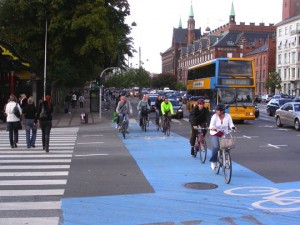 The availability of neighbourhood amenities also influences your ability to get around without a vehicle. Local access to shopping, restaurants and services increases the likelihood you can easily get what you need without using a car. Other characteristics might include nearby parks and public spaces, proximity to workplaces and schools, and whether the streets are designed with cyclists, pedestrians and transit users in mind (see Complete Streets). Curious how walkable your neighbourhood is? Try the Walk Score calculator to check out how it rates your area of the city.
The availability of neighbourhood amenities also influences your ability to get around without a vehicle. Local access to shopping, restaurants and services increases the likelihood you can easily get what you need without using a car. Other characteristics might include nearby parks and public spaces, proximity to workplaces and schools, and whether the streets are designed with cyclists, pedestrians and transit users in mind (see Complete Streets). Curious how walkable your neighbourhood is? Try the Walk Score calculator to check out how it rates your area of the city.
Adjusting to a car-light lifestyle
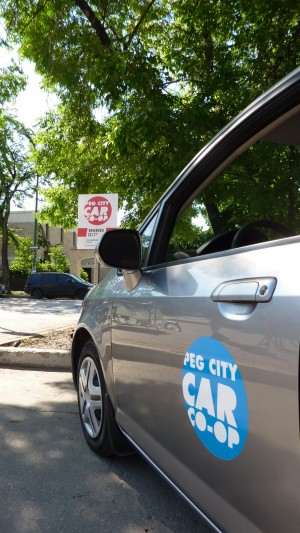
Choosing to live car-free required a lifestyle adjustment for some: learning to share rides (either on the bus or by carpooling), renting vehicles when going out of town, and borrowing a vehicle or joining a carshare for those times when a car is needed in the city. Many respondents also mentioned making more frequent shopping trips with lighter loads when travelling by bike, on foot or by bus.
Knowledge of different travel modes
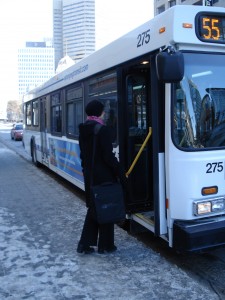
For those living car-free, it helps to have the know-how. Like taking advantage of Winnipeg Transit’s many tools (Navigo, BUStxt), checking out the Winnipeg Bike Map for the best routes to travel by bike, knowing how to maintain your bike, and trying out different walking routes to pick your favourites and figure out how far you are able to comfortably walk.
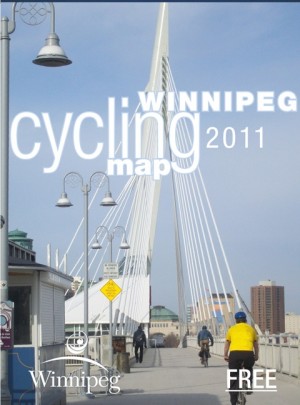
Car-free life is also about knowing which tool in your travel-box to use for which trips. Maybe your daily commute to work or school is by bus, your shopping is done by bike, and your trip to the dental appointment is on foot. (Yes, we have all done the walk of shame home! FLOSS, PEOPLE!).
Winnipeg’s Car-Free Travel-Box
Do you live car-free in Winnipeg? Or are you thinking about it? We have assembled the tools you need to get around:

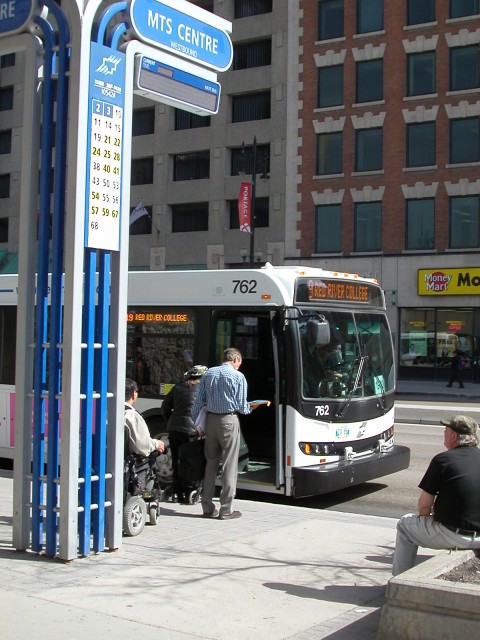


I am a stay at home Mom. My husband usually has the car. Has anyone ever discussed the possibility of creating some kind of a car pooling system that could incorporate Moms and children too? Perhaps including something like day or part day trips to the malls or other centers of interest in the city.
Great post!
I’d love to see less cars around the city.
However, I think the term/label “car-free” is a little misleading/ambitious
Thanks Tyler! By car-free, we mean without the need for personal vehicle ownership. We do not mean to say it is NEVER EVER using a car!
Also, I like the feel of “car-free”. It sounds like carefree. And it reminds me that due to my choices, I am free of car payments, insurance payments, worrying about increasing fuel costs, parking, towing, theft and vandalism. Makes it sound more like a choice, rather than merely “too poor to own a personal vehicle.”
Some people need to be car-free because they can’t drive, not because they can’t (or don’t want to) own a car. Lots of people have medical issues where driving isn’t an option. For them, this isn’t a choice.